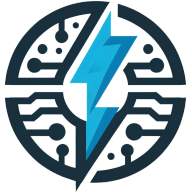6 Emerging Technologies in Electrical Engineering and their Future Impact
Imagine a world where electrical engineering propels us into a future of limitless possibilities. In this blog post, the insights of a CEO and a lead engineer are shared to shed light on the most exciting emerging technologies in the field. The first insight explores AI-powered smart grids enhancing energy efficiency, while the final insight discusses renewable energy integration reducing fossil fuel dependence, among a total of six expert insights. Each perspective provides a glimpse into how these innovations could soon transform the landscape of electrical engineering.
- AI-Powered Smart Grids Enhance Energy Efficiency
- Microgrids Boost Power Resilience
- Power Electronics Transform Electric Vehicles
- Wireless Power Transfer Simplifies Charging
- Smart Sensors Improve Grid Stability
- Renewable Energy Integration Reduces Fossil Fuel Dependence
AI-Powered Smart Grids Enhance Energy Efficiency
One emerging technology in electrical engineering that excites me is the development of smart grids powered by AI and machine learning. These technologies enable real-time monitoring, predictive maintenance, and optimized energy distribution, offering substantial improvements in efficiency, sustainability, and cost reduction. The integration of renewable energy sources, like solar and wind, is also facilitated, making energy systems more flexible and adaptive.
A specific example of its potential application is in reducing energy waste and enhancing grid resilience during peak usage times. AI-powered smart grids can predict demand spikes, adjust energy flow, and even reroute power in real time to avoid outages. This approach not only boosts energy efficiency but also helps in integrating renewable energy into the grid without compromising reliability. The long-term impact of this technology could lead to more sustainable, cost-effective, and reliable energy systems globally.
Microgrids Boost Power Resilience
Microgrids promise to enhance the resilience and reliability of electrical power systems. Unlike traditional large-scale grids, microgrids can operate independently if needed. This capability is especially crucial during natural disasters or cyber-attacks.
Microgrids can also integrate renewable energy sources, thereby reducing reliance on fossil fuels. The future will see more communities adopting microgrids for their versatility. Explore how microgrids can shape your community's power future today.
Power Electronics Transform Electric Vehicles
Power electronics are fundamentally transforming the electric vehicle (EV) market. These advanced systems enable more efficient power conversion and energy storage. As a result, EVs are becoming more affordable and accessible to the general public.
The rise of EVs also contributes to a reduction in greenhouse gas emissions. This shift towards electric mobility is expected to continue growing. Delve into the world of power electronics and its contributions to the EV revolution.
Wireless Power Transfer Simplifies Charging
Wireless power transfer technology is creating new possibilities for convenient charging solutions. This emerging technology allows devices to be charged without the need for cables. It is particularly beneficial for implanted medical devices and electric vehicles.
Wireless charging can simplify everyday life and improve the user experience. As research progresses, its applications will expand even further. Start learning about the benefits of wireless power transfer today.
Smart Sensors Improve Grid Stability
Smart sensors are revolutionizing the stability and efficiency of the electrical grid. These sensors can provide real-time data and diagnostics, allowing for quicker response times to issues. With improved monitoring, energy distribution becomes more reliable and cost-effective.
The integration of smart sensors helps in preventing outages and extending the life of grid components. This technology is paving the way for a more stable and efficient power supply. Investigate smart sensor advancements and their impact on the power grid.
Renewable Energy Integration Reduces Fossil Fuel Dependence
Integrating renewable energy sources is essential for creating a sustainable future. By harnessing solar, wind, and hydro power, the dependency on fossil fuels can be decreased. This shift not only helps in reducing carbon emissions but also in lowering energy costs.
The technology for renewable energy is continuously advancing, making it more viable for widespread use. Embrace the movement towards renewable energy for a cleaner future. Look into how renewable energy can be incorporated into everyday lives.


